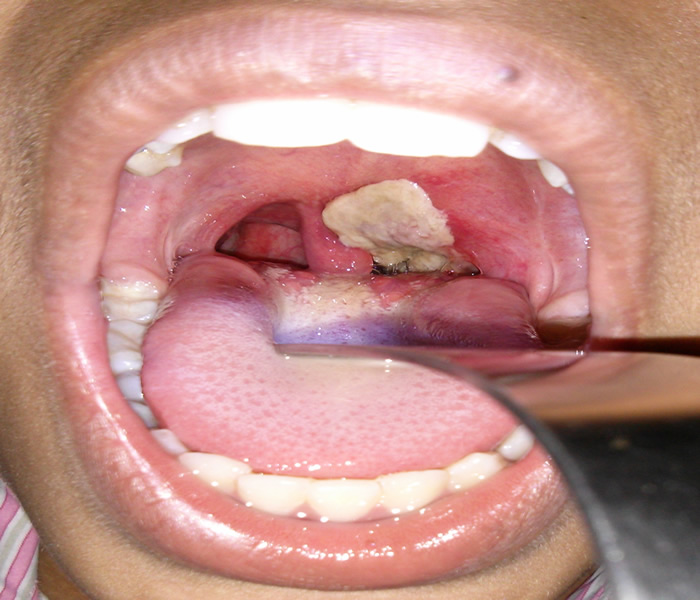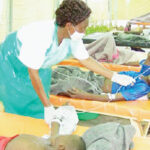
…suspected cases now 523
The Nigeria Centre for Disease Control and Prevention has confirmed 216 diphtheria cases from Kano, Yobe, Lagos, and Osun states.
This is even as the death toll has hit 40 in the country.
The NCDC also said the suspected cases in the country are now 523 from five states – Kano, Yobe, Katsina, Lagos, and Osun states.
The Lead of the Diphtheria/Pertussis Technical Working Group in the NCDC, Dr Bola Lawal revealed this at a webinar titled ‘Diphtheria Outbreak in Nigeria: A Case of Re-Emergence or Improved Surveillance,’ monitored by our correspondent on Monday.
Diphtheria is a serious bacterial infection caused by the bacterium called Corynebacterium species that affects the nose, throat, and sometimes, skin of an individual. Diphtheria spreads easily between people through direct contact with infected people droplets from coughing or sneezing, and contact with contaminated clothing and objects.
Dr Lawal said the NCDC was notified of suspected diphtheria outbreaks from Kano state and Lagos state and the rapid response team was deployed to the states on December 12, 2022, where the outbreak was confirmed in the states.
He noted that the agency is currently supporting the response activities in Kano, Katsina, Lagos, Osun, Yobe, and other states.
Giving a breakdown of the epidemiological situation, he said “Kano state has recorded 396 suspected cases with 211 confirmed cases, Yobe state has recorded 78 suspected cases with two confirmed cases; Katsina has 34 suspected cases but no confirmed case yet; Lagos state has recorded 14 suspected cases and two confirmed cases; Osun state has one confirmed case so far.
“We have also recorded 40 deaths with a case fatality rate of 18.5 per cent.
“Of the 216 confirmed cases, 184 (85.2 per cent) were aged two to 14 years from both sexes.”
He added that 40 deaths were recorded in Kano State (38) and Lagos State (two).
On the vaccination status, he said of the 216 confirmed cases, 27 were fully vaccinated, 84 were unvaccinated and 20 were partly vaccinated.
The expert said diphtheria is very much in the country with sub-optimal coverage for the pentavalent vaccine and the burden of diphtheria is under-reported due to poor surveillance and limited capacity for laboratory confirmation.
“For effective control of diphtheria, there must be a high index of suspicion among health care workers, strong laboratory capacity, timely access to diphtheria antitoxin and vaccination against diphtheria.”
In his remarks, the Director General of the NCDC, Dr Ifedayo Adetifa said the fight against disease outbreaks in the country is a joint effort involving everyone.
“Surveillance is everybody’s responsibility, it is not just enough to see. If you see something suspicious, report it to your local government, report to NCDC and then they can investigate.
“The idea is that it allows us to pick up soon after it occurs and provide more time to respond so that we can save lives and reduce suffering and protect our health workers from both known and unknown dangerous pathogens,” Adetifa said.





